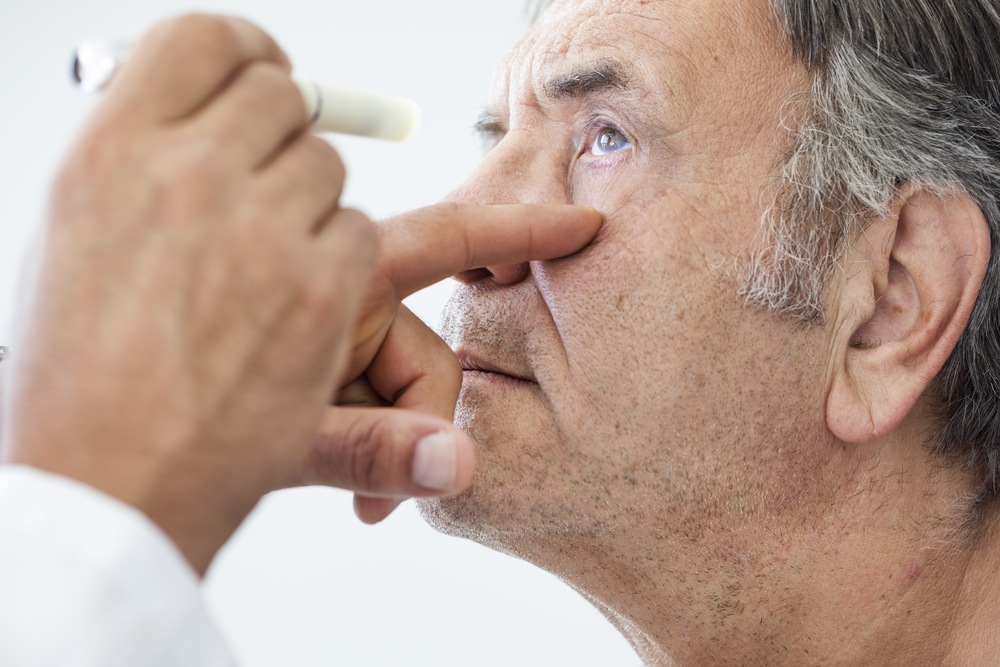5 Surprising Reasons Why You May Have Watery Eyes

Having watery eyes when it’s windy outside is completely normal. If you’re struggling with this problem on a daily basis, though, it might signal a more serious health issue.
Stephanie Marioneaux, MD, clinical spokesperson for the American Academy of Ophthalmology, says that many times watery eyes could signal an infection (such as pink eye) which requires specialized medical treatment.
Dr. Marioneaux further adds that her patients often see watery eyes as nothing more than an annoyance that makes them carry tissues everywhere they go. In reality, the human eye is among the most complex organs in our body and any unusual sign should be addressed as quickly as possible.
As Dr. Marioneaux advises, you should contact a specialist if you experience any symptom for more than 24 hours.
With this information in mind, let’s have a look at 5 of the most common causes for watery eyes.
P.S.: Ironic as it may seem, #4 can actually cause this unpleasant sign!
-
Medication
Ray Chan, MD, ophthalmologist at Texas Health Arlington Memorial Hospital, says that there’s a wide range of medicine which can cause watery eyes. The most common ones include diuretics, antihistamines, decongestants, antidepressants and chemotherapy drugs.
Antihistamines and decongestants, for instance, are designed to reduce itchy skin and a runny nose. As a side effect, aqueous production of the tear film is also decreased, thus causing a tear-film dysfunction and watery eyes.
Meanwhile, antidepressants can interrupt the signals sent by nerve cells to the brain which control tear production.
-
Allergies
One of the most common symptom of allergies is itchiness in different areas on the body – your eyes included. As a natural response, your tear film is releasing extra liquid to help eliminate the itchy sensation.
The worst thing you can do in this case? Rub your eyes.
If your eyes become watery due to an allergy, it’s very likely that it was caused by your hand touching the eyes in the first place. Annoying as it may be, the smartest choice is to simply allow the eye to tear and clean itself from the allergens that caused this issue.
-
Blocked tear ducts
Tear ducts are tiny canals that allow tears to flow towards the exterior of the eye. But howyou’re your eyes be so watery if the tear ducts are blocked? I’ll let Douglas Lazzaro, MD, ophthalmologist at NYU Langone Health, explain:
“Blocked tear ducts actually do not allow the normal tears produced to drain into the tear duct, so the patient frequently has tearing down the cheek. Patients frequently consider this excessive watery eyes, but in fact, this is normal tearing that is not draining well.”
-
Dry eyes
Once again, it may seem ironic that dry eyes actually make your eyes too watery.
According to Dr. Lazzaro, dry eyes is a condition that causes extreme dryness of the ocular surface. This disease prevents the eye from cleaning on its own, which in turn leads to excessive accumulation of dust and other harmful particles.
Tears appear as a natural defense mechanism to keep the ocular surface clean and reduce dryness on the outer layer of the cornea, the conjunctiva and the edges of the eyelids.
-
Autoimmune diseases
Over the years, specialists were able to link excessively watery eyes with certain autoimmune diseases, such as rheumatoid arthritis. However, researchers still need to gather more data to determine the exact connection between the two.
![]() Looking for more useful health content? Check out our other posts:
Looking for more useful health content? Check out our other posts:
- Struggling with Bad Breath? Avoid These 8 Foods at All Costs
- Treating Back and Neck Pain at Home: Alternative Therapies
- 6 Worst Post-Dinner Habits That Make You Gain Weight
Have you been suffering from watery eyes? If so, what was the cause behind this unpleasant symptom? Share your experiences in the comment section and let’s stay healthy together!
